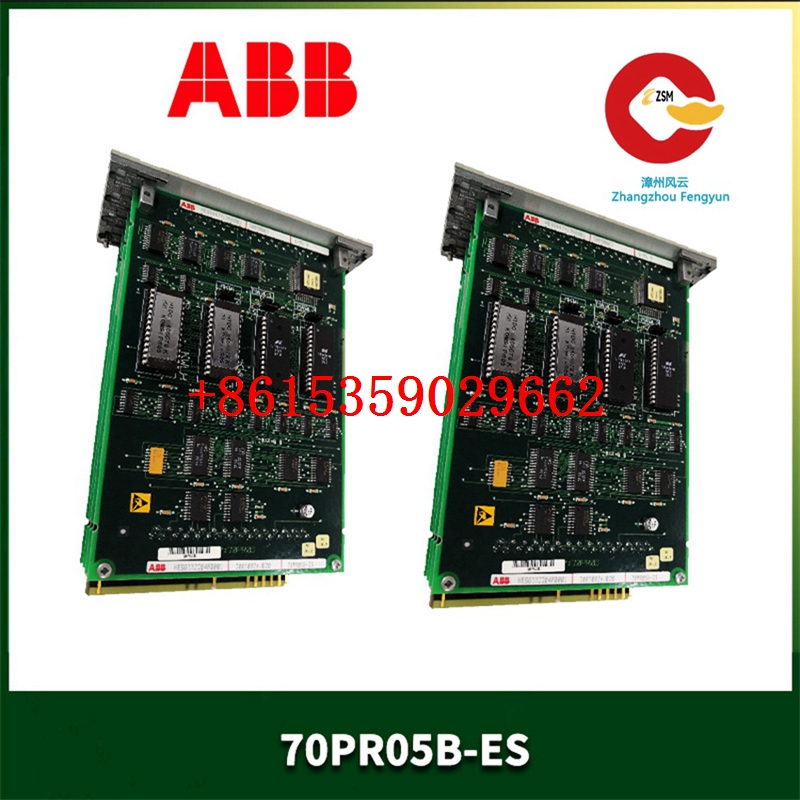The ABB RDCU-02C Inverter Control Unit is a key component designed for advanced motor control and frequency conversion applications. Below is a detailed technical introduction in English:

Key Technical Parameters
- Product Series & Compatibility
- Series: Belongs to the ACS800 series of inverter control units.
- Application Range: Universally applicable for various industrial motor control scenarios.
- Electrical Specifications
- Rated Voltage: Typically supports three-phase AC 380-400V (may vary based on specific applications).
- Adaptive Motor Power: Suitable for motors ranging from 1.5 kW to 1600 kW.
- Rated Current: Ranges from 4.7A to 2731A (current range may vary by model or application).
- Output Voltage Regulation: Adjustable output voltage range of AC 380-480V (varies by model).
- Control Modes & Functions
- Control Modes: Supports direct torque control (DTC), V/F control, and other advanced control algorithms.
- Communication Interfaces: Includes Ethernet, RS-485, and CANopen for seamless integration with industrial networks and PLCs.
- Protection Functions: Built-in protection against overcurrent, overvoltage, undervoltage, and short circuits.
- Mechanical & Environmental Specifications
- Dimensions: Approximately 380mm x 49mm x 22mm (dimensions may vary slightly by product version).
- Operating Temperature Range: -20°C to +70°C (or wider, depending on the design).
- Protection Rating: IP20 (indicates protection against dust and limited water ingress).
- Housing Material: Durable, industrial-grade materials for long-term reliability.
- Software & Programming
- Programming Software: Compatible with ABB’s dedicated software tools for parameter configuration, commissioning, and diagnostics.
- Control Algorithms: Supports advanced control algorithms such as PID, vector control, and direct torque control (DTC).
- Additional Features
- Redundancy Support: Optional redundant power supply configurations for enhanced system reliability.
- Diagnostic Tools: Built-in diagnostic tools for real-time monitoring of system status and fault detection.
- Scalability: Modular design allows for easy system expansion and customization.
- Certifications & Compliance
- Complies with international standards such as CE, UL, and IEC for safety and electromagnetic compatibility (EMC).
Applications
- Industrial Motor Drives: For controlling pumps, fans, compressors, and conveyors.
- Renewable Energy Systems: In wind turbine and solar inverter applications for motor control.
- Process Automation: As part of a larger automation system for process control and material handling.
Advantages
- High Reliability: Designed for 24/7 operation in demanding industrial environments.
- Energy Efficiency: Advanced control algorithms minimize energy consumption.
- Flexibility: Supports a wide range of motor types and control modes.
- Global Support: Backed by ABB’s extensive service network and technical assistance.
For the most accurate and up-to-date technical specifications, it is recommended to consult the official ABB documentation or contact an ABB sales representative.


